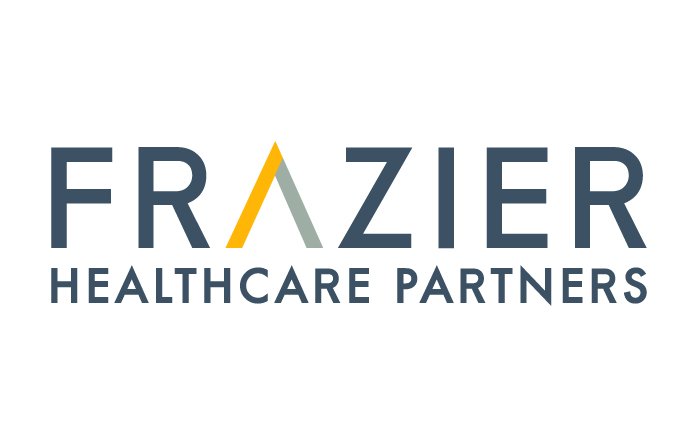By Justin Lindhorst
The beginning of the year, for many, can mean initiating new health insurance coverage. When initiating new coverage, individuals living with a chronic health condition sometimes experience challenges that can delay access to prescribed therapy.
This article outlines how specialty pharmacies like BioMatrix can help patients avoid access-to-care issues, provides tips and best practices patients can implement, and includes links to helpful resources.
Specialty Pharmacy Support
Anyone who has a chronic health condition can identify a time they’ve had to spend a significant amount of time on the phone with their health insurance plan. Unfortunately, patients share it’s not entirely uncommon to be told one thing by one customer service representative, only to be told something entirely different by another.
Specialty pharmacies can help break down barriers to care and cut through red tape by conducting a thorough benefits investigation, facilitating access to financial support programs, and working with your insurance plan and medical team to provide support for prior authorizations and appeals.
Specialty pharmacies such as BioMatrix employ staff who are very well versed in promptly identifying and resolving coverage issues specific to your health condition. The first tool at their disposal is conducting a comprehensive benefits investigation. The benefits investigation provides a detailed outline of coverage specific to your therapy, including whether it is covered under the medical or pharmacy benefit, whether the medication requires prior authorization, your financial responsibility, and what specialty pharmacy service providers are available under the plan.
After the benefits investigation is complete, the specialty pharmacy can refer you to available and appropriate patient assistance programs to reduce financial barriers to care. They can also work together with your medical provider and health plan to obtain timely prior authorization for service and assist when and if an appeal is necessary.
Asking your provider to send a referral to BioMatrix or another reputable specialty pharmacy is a good first step in avoiding coverage issues.
Maintaining Access to Care: Tips and Best Practices
There are also steps you can personally take to avoid access issues. Following the guidelines below can go a long way in resolving potential barriers.
Be Proactive
Don’t wait until you are critically low on medication to place your first order with your new health plan. Placing your order in a timely manner will give your medical provider and specialty pharmacy enough time to resolve any issues before it potentially disrupts your care.
Reach Out to a Social Worker
If you are experiencing or anticipate coverage issues, social workers can be a great source of support. Many medical providers supporting patients with rare or chronic health conditions engage social workers as part of a multidisciplinary care team. Ask your provider if there are social workers available to assist with coverage or other issues.
Keep Detailed Records
When you need to contact your insurance provider regarding any issue or concern, it’s very important to document every call. Keep notes on the following: date and time of the call, the reason for the call, name of the person you spoke with, the result of the call, reference number, and any impact on your health resulting from the issue/call.
Document Medical Necessity
Work with your medical provider to document the medical necessity of your treatment. Having robust documentation on file can speed the resolution of issues related to prior authorization, denials, step therapy, or appeals. Ask your provider to write a letter on official letterhead identifying your diagnosis, the therapy you have been prescribed and why, any previously failed treatments, and the consequences of not having access to your prescribed therapy.
Include medical records, clinical evaluations, or other supplemental documentation supporting your diagnosis/treatment. Keep a copy for your personal records, and request a copy be kept on file with your specialty pharmacy.
Check for Copay Accumulators
If you are using a manufacturer or other third-party copay assistance program, determine if your plan is using a copay accumulator. Verify with your specialty pharmacy whether payments are being received from the copay assistance program you are enrolled in.
Once you’ve verified payments are being made, check your Explanation of Benefits (EOB). If the payments from your assistance program are not being applied to your out-of-pocket costs, your plan may be using an accumulator program.
Understand the Appeal Process
Every plan’s process for an appeal varies. Check with your insurance provider to determine their specific appeal process. Don’t hesitate to involve your medical provider and specialty pharmacy for additional assistance.
Understand the denial of the claim by investigating the explanation of benefits statement (EOB). There is often a code noted on the EOB if there is a denial of coverage or a letter with codes and a key code to decipher what the denial was based upon. Identifying the code will allow you to see if it was a true denial or a basic miscoding by the provider or insurance.
Keep all documentation including referrals, doctor’s notes, medical history, medicines or prescriptions, and notes from all contact with providers or insurance regarding the claim. The burden of proof is in your hands.
Organize Your Paperwork
If you have the aforementioned documents, you might also need to write a letter to the insurance company (written appeal). Keep documentation of your claim number, insurance information, provider/services information readily available. Request a reference number and employee name for every phone call to your insurance plan.
Be cognizant of the appeal timeline (30/60/90 days in many cases). Be sure to file all paperwork and make calls within the timeline allowed. If your appeal is denied a second time you may be able to file another appeal. Some aspects of the ACA mandate states allow an external review process for denied claims.
Follow up on every call, text, email, and mail document you submit. Be sure it has a record of receipt.
Navigating new coverage can be challenging for patients who require specialty medication. Avoid any potential disruptions in care by leveraging every resource at your disposal. Work with your specialty pharmacy and medical providers early in the month to identify and resolve issues before they become an emergency.
Follow the guidelines as outlined above any time you reach out to your health plan. Working together at the start of a new plan can make all the difference in maintaining uninterrupted access to the therapy and services keeping you healthy.
Useful Links
Centers for Medicare and Medicaid Services: Official website for the Centers for Medicare and Medicaid Services (CMS): https://www.cms.gov/
E-Health Insurance Glossary: eHealth provides a list of common insurance terms on their website: https://www.ehealthinsurance.com/health-insurance-glossary/terms-c/
Employee Benefits Security Administration: https://www.dol.gov/agencies/ebsa
National Association of Insurance Commissioners (NAIC): NAIC is a standard-setting and regulatory support organization. Their website includes a map that will allow you to determine the insurance commissioner in your state: https://content.naic.org/
Patient Advocate Foundation: The Patient Advocate Foundation (PAF) is dedicated to improving healthcare access. Their website offers education, assistance, and resources related to healthcare coverage: https://www.patientadvocate.org/
United States Department of Labor: Includes information on ERISA and COBRA plans: https://www.dol.gov/general/topic/health-plans
Stay informed on the latest trends in healthcare and specialty pharmacy.
Sign up for our monthly e-newsletter, BioMatrix Abstract.
By giving us your contact information and signing up to receive this content, you'll also be receiving marketing materials by email. You can unsubscribe at any time. We value your privacy. Our mailing list is private and will never be sold or shared with a third party. Review our Privacy Policy here.
Reference
National Hemophilia Foundation. (2021). Comprehensive Medical Care. https://www.hemophilia.org/healthcare-professionals/guidelines-on-care/comprehensive-medical-care





